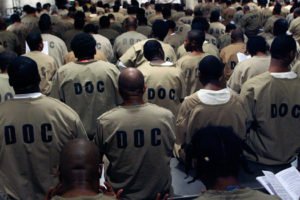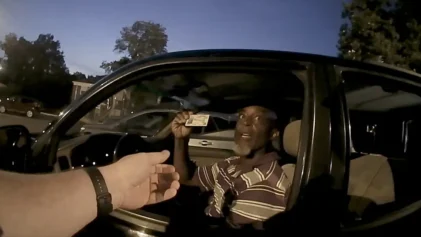
As a result, we are at the point where a recent analysis released by Upshot found that for every 100 Black women in Black communities across the US, there are only 83 Black men. The remaining 1.5 million Black men who are missing are either in jail or prematurely died. In Ferguson, which had the biggest imbalance in the country among municipalities with more than 10,000 residents, the gap was 60 Black men for every 100 Black women.
So it is somewhat disconcerting to see former President Clinton leading the chorus of experts talking about the need to reform the incarceration system, to reverse this trend that has made America the world’s most prolific jailer. It is a theme that presidential candidate Hillary Clinton is expected to visit today with a speech on prison reform.
“The drop in violence and crime in America has been an extraordinary national achievement. But plainly, our nation has too many people in prison and for too long — we have overshot the mark,” Clinton said in the foreword to a new report, Solutions: American Leaders Speak Out on Criminal Justice, released by the Brennan Center for Justice at New York University that includes a series of essays written by national leaders such as Hillary Clinton, Chris Christie, Marco Rubio, Rand Paul, Scott Walker and Cory Booker (yes, the list is very heavy with expected presidential candidates). “With just 5 percent of the world’s population, we now have 25 percent of its prison population, and an emerging bipartisan consensus now understands the need to do better.”
“It has been two decades since there was sustained national attention to criminal justice. By 1994, violent crime had tripled in 30 years. Our communities were under assault,” the former president wrote. “We acted to address a genuine national crisis. But much has changed since then. It’s time to take a clear-eyed look at what worked, what didn’t, and what produced unintended, long-lasting consequences.
“So many of these laws worked well, especially those that put more police on the streets. But too many laws were overly broad instead of appropriately tailored. A very small number of people commit a large percentage of serious crimes — and society gains when that relatively small group is behind bars. But some are in prison who shouldn’t be, others are in for too long, and without a plan to educate, train, and reintegrate them into our communities, we all suffer.”
How much did Clinton contribute to the nation overshooting the mark?
The magnitude of his 1994 crime bill is described in detail by Vox.com, which outlines how it put 100,000 more police on American streets, authorized billions of dollars for prison construction, forced states to impose harsher sentences on violent offenders to be eligible for prison-construction grants, and deprived federal inmates of access to college courses.
Not only that, but the bill was a major plank in Clinton’s platform when he campaigned for reelection in 1996. Vox quoted from the Democratic Party platform that year, which boasted, “We believe that people who break the law should be punished, and people who commit violent crimes should be punished severely. President Clinton made three-strikes-you’re-out the law of the land, to ensure that the most dangerous criminals go to jail for life, with no chance of parole.”
Vox said that Hillary Clinton’s efforts, along with the other candidates (from both parties), to walk back many of those policies, is “a stunning condemnation of one of the most clear-cut policy failures of Bill Clinton’s presidency” and a sign of how much the policy “fundamentally altered the national political landscape on criminal justice issues.”


